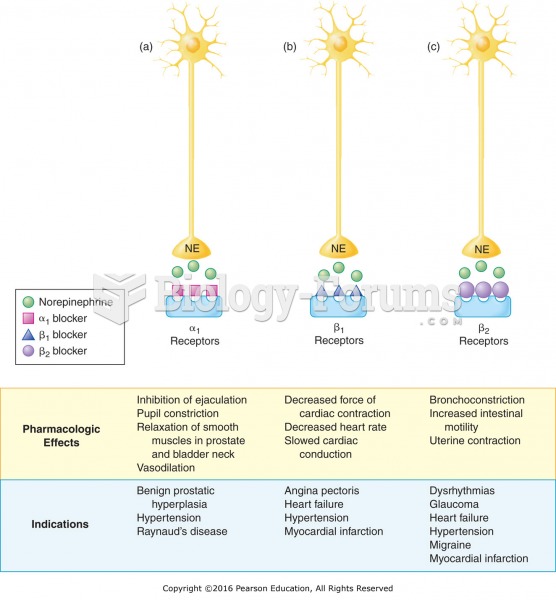|
|
|
There are approximately 3 million unintended pregnancies in the United States each year.
The longest a person has survived after a heart transplant is 24 years.
The most common childhood diseases include croup, chickenpox, ear infections, flu, pneumonia, ringworm, respiratory syncytial virus, scabies, head lice, and asthma.
According to the American College of Allergy, Asthma & Immunology, more than 50 million Americans have some kind of food allergy. Food allergies affect between 4 and 6% of children, and 4% of adults, according to the CDC. The most common food allergies include shellfish, peanuts, walnuts, fish, eggs, milk, and soy.
Patients who have undergone chemotherapy for the treatment of cancer often complain of a lack of mental focus; memory loss; and a general diminution in abilities such as multitasking, attention span, and general mental agility.
 Sociologists study the social factors that underlie human behavior, the experiences that mold us, ...
Sociologists study the social factors that underlie human behavior, the experiences that mold us, ...
 Pharmacologic effects and indications of adrenergic antagonists: (a) blockade of alpha1 receptors; ...
Pharmacologic effects and indications of adrenergic antagonists: (a) blockade of alpha1 receptors; ...





